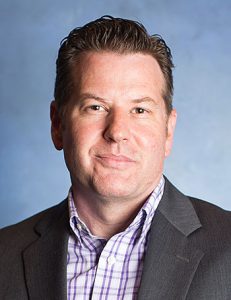UCI Launches New Professional Program: Master of Data Science
“Data scientist” is third on Glassdoor’s list of the “50 Best Jobs in American for 2020,” which shouldn’t be too surprising given the rise of big data and growing demand for empirical-based decision making across many industries. To help meet this demand, the Donald Bren School of Information and Computer Sciences (ICS) is currently accepting applications for the new Master of Data Science (MDS) program it is launching in the fall of 2021. Anyone interested in joining the inaugural cohort of this 15-month professional graduate program can apply online. The early application deadline is December 15th, 2020. After that, applications will be accepted on a rolling basis until April 15th, 2021.
 “We see lots of demand coming from individuals who were trained in computer science, for example, without rigorous statistical training,” says Daniel Gillen, chair of the Department of Statistics. “We also see demand coming from individuals who were trained in mathematical sciences and statistics but don’t have the computing background,” he continues. “And then there are a lot of individuals coming from other disciplines as well… from business analytics backgrounds [and] from political and social science backgrounds.”
“We see lots of demand coming from individuals who were trained in computer science, for example, without rigorous statistical training,” says Daniel Gillen, chair of the Department of Statistics. “We also see demand coming from individuals who were trained in mathematical sciences and statistics but don’t have the computing background,” he continues. “And then there are a lot of individuals coming from other disciplines as well… from business analytics backgrounds [and] from political and social science backgrounds.”
So whether you’re in the tech industry, at a financial institution, in a domain such as education or healthcare, or a recent graduate looking for more training, this program is designed to advance your data science skills. While there are minimum course requirements, the goal is to fill certain gaps in training while providing practical, hands-on experience.
“What makes this program unique is that it is going to be taught and delivered by world-renowned experts in the foundations of data science, meaning both statistics and computing,” says Gillen. The courses will cover applied probability and mathematical statistics, statistical modeling and computing, machine learning, data management and visualization, and artificial intelligence. More importantly, they will be evenly split between faculty from the Department of Statistics and the Department of Computer Science, both of which are housed in the School of ICS.
“Industry is learning very quickly that a lot of people can scrape and analyze data, but to do something truly meaningful with data — to make decisions [that will] drive the industry forward — you really have to have a basic foundational understanding of the methods you’re using,” says Gillen. “That is what drives the philosophy of this degree.”
The program spans five quarters, with the first three quarters comprising coursework in both statistics and computer science. The summer quarter is available for internships or additional courses. To accommodate working professionals, all courses will be offered in the late afternoon or evening, and for those in need of financial assistance, scholarships and financial aid are available.
The final quarter is the capstone course, where students will work on industry-derived projects, gaining real-world, hands-on experience. “We plan to partner with businesses to help generate not only contacts for students but also interesting capstone projects.” (If your business is interested in sponsoring a capstone project, please contact Bryan Munoz at mds@www-test.ics.uci.edu.)
Furthermore, because this program adds to the list of successful professional programs already offered through the School of ICS, students will have access to dedicated career counselors and will participate in showcase events. So while the goal is to keep the initial MDS cohort relatively small, students will be able to leverage resources and events available through the established graduate programs. “It will be fairly selective, so we’re aiming at 50 students for the first cohort,” says Gillen, though that might grow in future years. This select group of students will gain experience in using relevant data-related software and technologies so they can thrive as data scientists, whether their goal is to work in the tech industry or government or anywhere in between. “We’re going to focus on taking what is learned about the foundations of these disciplines,” stresses Gillen, “and applying them to real-world data.”
— Shani Murray